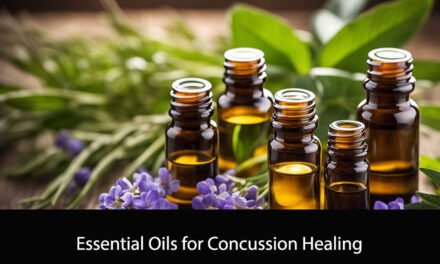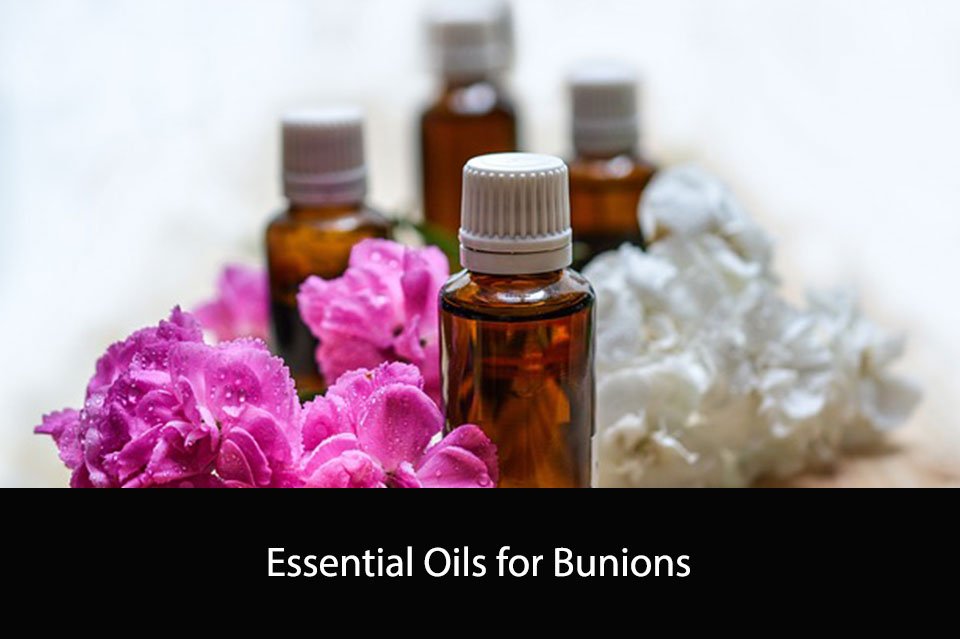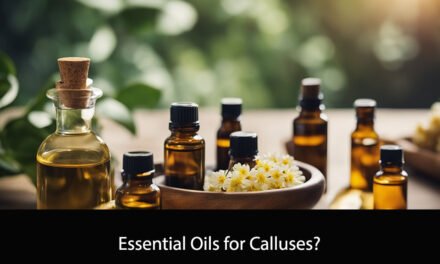Essential oils have been used for centuries for their therapeutic properties. They are derived from various parts of plants and are highly concentrated, making them potent and effective. One of the many uses of essential oils is to treat abscesses, which are painful and uncomfortable skin infections that can occur anywhere on the body.
Abscesses are caused by bacteria that enter the body through a cut, wound, or insect bite. They can be painful, swollen, and filled with pus. While antibiotics are often prescribed to treat abscesses, essential oils can be a natural and effective alternative. Essential oils have anti-inflammatory, antimicrobial, and analgesic properties that can help reduce swelling, fight infection, and alleviate pain. Some of the best essential oils for abscesses include tea tree oil, oregano oil, and lavender oil.
Understanding Abscess

An abscess is a localized infection that occurs when bacteria enter the body through a wound or injury. The body’s immune system sends white blood cells to the area to fight the infection, which can result in the formation of pus. Abscesses can occur anywhere on the body, but they are most commonly found on the skin, in the mouth, or in the rectum.
Symptoms of an abscess include pain, swelling, redness, and warmth in the affected area. In some cases, a fever may also be present. If left untreated, an abscess can cause serious complications, such as the spread of infection to other parts of the body.
Treatment for an abscess typically involves draining the pus and taking antibiotics to kill the bacteria causing the infection. In some cases, surgery may be necessary to remove the abscess.
While essential oils may have some antibacterial properties, they should not be used as a substitute for medical treatment for an abscess. It is important to consult with a healthcare professional for proper diagnosis and treatment of an abscess.
Essential Oils: An Overview
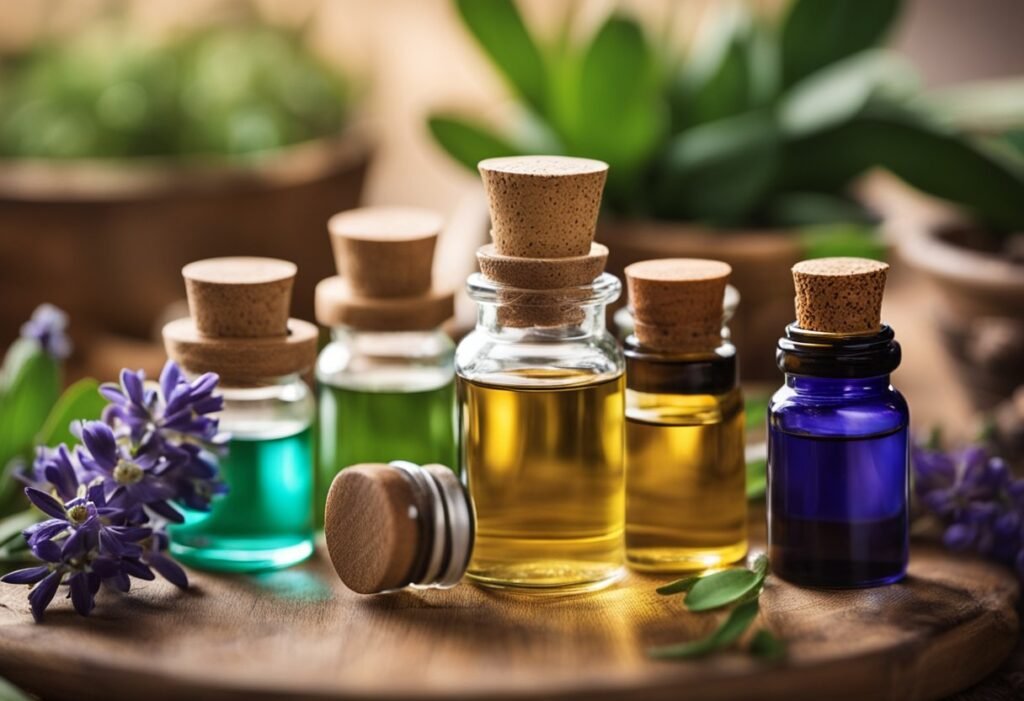
Essential oils are highly concentrated plant extracts that have been used for centuries for their medicinal properties. They are obtained through a process of steam distillation or cold pressing of various parts of plants, including leaves, flowers, bark, and roots.
These oils contain the essence of the plant, including its fragrance and unique chemical composition. Each essential oil has its own set of therapeutic properties that can be used to promote healing and wellness.
When it comes to abscesses, essential oils can be used topically to help reduce inflammation, fight infection, and promote healing. Some of the most commonly used essential oils for abscesses include tea tree oil, lavender oil, and oregano oil.
It is important to note that while essential oils can be beneficial for abscesses, they should not be used as a replacement for medical treatment. If you suspect you have an abscess, it is important to seek medical attention to prevent further complications.
When using essential oils, it is important to dilute them properly before applying them to the skin. This can be done by mixing a few drops of essential oil with a carrier oil, such as coconut oil or almond oil. It is also important to do a patch test before using any new essential oil to ensure that you are not allergic or sensitive to it.
In summary, essential oils can be a natural and effective way to promote healing and reduce inflammation for abscesses. However, they should be used in conjunction with medical treatment and with caution to ensure safe and effective use.
Essential Oils for Abscess
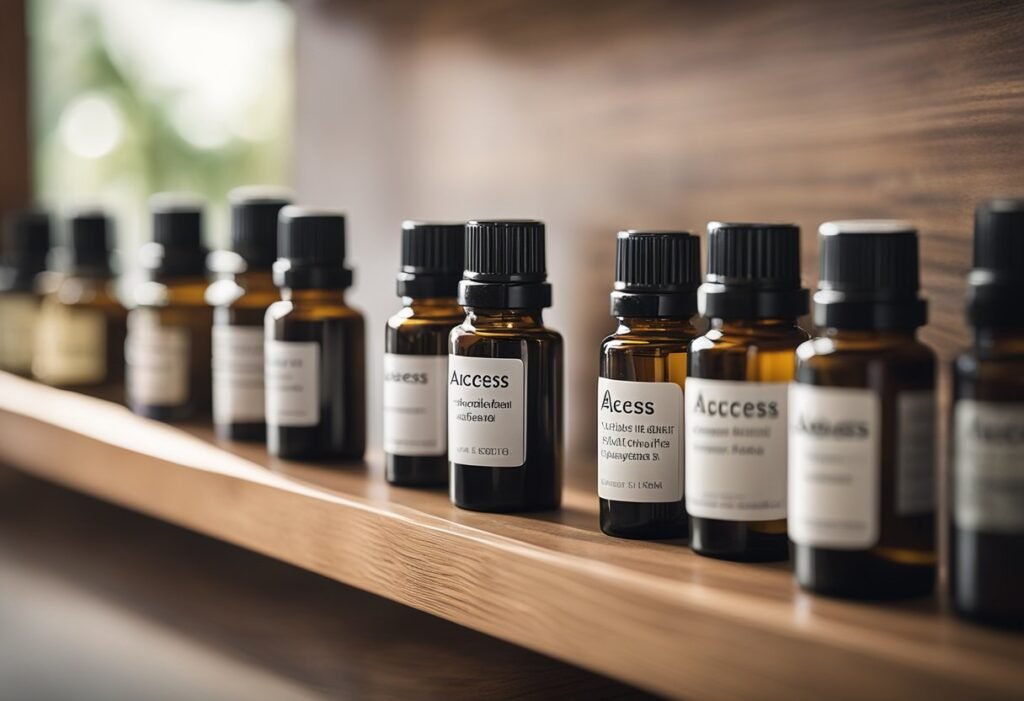
Abscesses can be painful and uncomfortable, and it’s important to treat them properly to avoid complications. Essential oils can be a natural and effective way to help alleviate symptoms and promote healing.
One essential oil that has been found to be helpful for abscesses is tea tree oil. This oil has antibacterial and anti-inflammatory properties, which can help reduce swelling and fight infection. To use tea tree oil, dilute it with a carrier oil such as coconut oil or almond oil, and apply it to the affected area several times a day.
Another essential oil that may be beneficial for abscesses is lavender oil. Lavender oil has antibacterial and anti-inflammatory properties, and it can help soothe the skin and reduce pain. To use lavender oil, dilute it with a carrier oil and apply it to the abscess several times a day.
Eucalyptus oil is another essential oil that may be helpful for abscesses. This oil has antimicrobial and anti-inflammatory properties, and it can help reduce pain and swelling. To use eucalyptus oil, dilute it with a carrier oil and apply it to the affected area several times a day.
It’s important to note that essential oils should never be used as a substitute for medical treatment. If you have an abscess, it’s important to see a healthcare provider to determine the best course of treatment. Essential oils can be used in conjunction with medical treatment to help alleviate symptoms and promote healing.
Lavender Oil
Benefits
Lavender oil is a popular essential oil known for its calming and soothing properties. It has a sweet, floral aroma that helps to relax the mind and body. Lavender oil has been used for centuries to treat various ailments, including abscesses.
Lavender oil has antibacterial and anti-inflammatory properties that make it an effective treatment for abscesses. It helps to reduce swelling and pain, while also preventing the spread of infection. Additionally, lavender oil can help to promote healing and prevent scarring.
Usage
To use lavender oil for an abscess, mix a few drops of the oil with a carrier oil, such as coconut or almond oil. Apply the mixture directly to the abscess using a cotton ball or swab. You can also add a few drops of lavender oil to a warm compress and apply it to the affected area.
It is important to note that lavender oil should not be used as a substitute for medical treatment. If you have a severe abscess or are experiencing symptoms such as fever or chills, seek medical attention immediately.
In conclusion, lavender oil can be a helpful natural remedy for treating abscesses. Its antibacterial and anti-inflammatory properties make it an effective treatment option. However, it is important to use it in conjunction with medical treatment and not as a replacement.
Tea Tree Oil
Benefits
Tea tree oil is a versatile essential oil that has been used for centuries due to its impressive medicinal properties. It is known for its potent antibacterial, antifungal, and anti-inflammatory effects, making it an effective natural remedy for abscesses.
Tea tree oil works by killing the bacteria that cause abscesses, reducing inflammation, and promoting healing. It also helps to prevent the formation of new abscesses by keeping the skin clean and healthy.
Usage
To use tea tree oil for abscesses, dilute a few drops of the oil in a carrier oil such as coconut oil or olive oil. Apply the mixture directly to the affected area using a cotton ball or swab. Repeat this process twice daily until the abscess has healed.
It is essential to dilute tea tree oil before applying it to the skin, as it can cause irritation and allergic reactions in some people. It is also important to avoid using tea tree oil on open wounds or broken skin.
Tea tree oil can also be added to a warm bath to help soothe and heal abscesses on the body. Simply add a few drops of tea tree oil to your bathwater and soak for 10-15 minutes.
Overall, tea tree oil is a natural and effective remedy for abscesses that can help to reduce inflammation, kill bacteria, and promote healing. However, it is important to use it safely and correctly to avoid any adverse reactions.
Eucalyptus Oil
Benefits
Eucalyptus oil is a popular essential oil that has been used for centuries due to its numerous benefits. Some of the benefits of eucalyptus oil include:
- Anti-inflammatory properties: Eucalyptus oil has anti-inflammatory properties that can help reduce the swelling and inflammation caused by abscess.
- Pain relief: The oil contains compounds that have pain-relieving properties, which can help alleviate the pain associated with abscess.
- Antimicrobial properties: Eucalyptus oil has antimicrobial properties that can help prevent the growth of bacteria that can cause or worsen abscess.
- Decongestant: The oil can help clear the respiratory system, making it easier to breathe and reducing the risk of respiratory infections that can lead to abscess.
Usage
There are different ways to use eucalyptus oil for abscess. Some of the most common methods include:
- Inhalation: Add a few drops of eucalyptus oil to a bowl of hot water and inhale the steam. This can help clear the respiratory system and reduce the risk of respiratory infections that can lead to abscess.
- Topical application: Dilute eucalyptus oil with a carrier oil such as coconut oil or almond oil and apply it to the affected area. This can help reduce inflammation and pain associated with abscess.
- Diffusion: Add a few drops of eucalyptus oil to a diffuser and let it diffuse in the air. This can help purify the air and reduce the risk of respiratory infections that can lead to abscess.
It is important to note that eucalyptus oil should not be ingested. Also, it is advisable to consult a healthcare professional before using eucalyptus oil, especially if you have any underlying health conditions or are pregnant or breastfeeding.
Frankincense Oil
Benefits
Frankincense oil is known for its anti-inflammatory and antiseptic properties, making it a great option for treating abscesses. It contains compounds that can help reduce swelling and pain, as well as prevent infection.
In addition, frankincense oil has been shown to have a calming effect on the mind and body, which can be helpful for those experiencing stress or anxiety related to their abscess.
Usage
To use frankincense oil for abscesses, mix a few drops with a carrier oil such as coconut or jojoba oil, and apply directly to the affected area. You can also add a few drops to a warm compress and apply to the abscess for 10-15 minutes at a time.
It’s important to note that frankincense oil should not be used on open wounds or broken skin, as it may cause irritation. It’s also recommended to do a patch test before using frankincense oil for the first time, to ensure that you don’t have an allergic reaction.
Overall, frankincense oil can be a beneficial addition to your abscess treatment plan, but it should not be used as a substitute for medical care. If your abscess is severe or does not improve with at-home remedies, it’s important to seek medical attention.
Safety Precautions to Consider
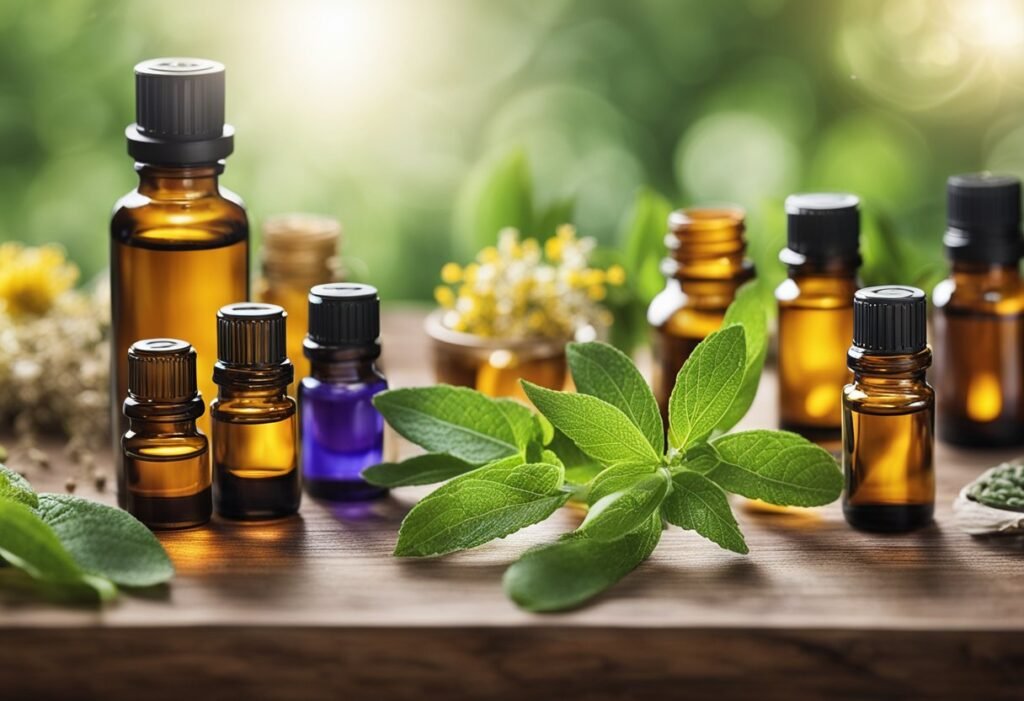
When using essential oils for abscess, there are some safety precautions that we need to keep in mind to ensure that we are using them safely and effectively.
Firstly, it is important to note that essential oils are highly concentrated plant extracts and should be used with caution. Always dilute the essential oils with a carrier oil before applying them to the skin. This will help to prevent skin irritation and other adverse reactions.
Secondly, it is important to do a patch test before using any essential oil for the first time. Apply a small amount of diluted essential oil to a small area of skin and wait for 24 hours to see if there is any adverse reaction.
Thirdly, some essential oils are not safe for use during pregnancy or for young children. It is important to consult with a healthcare professional before using essential oils if you are pregnant or have young children.
Finally, it is important to store essential oils properly. Essential oils should be stored in a cool, dry place, away from direct sunlight and heat. They should be kept out of reach of children and pets.
By following these safety precautions, we can ensure that we are using essential oils safely and effectively for abscess treatment.
Conclusion
In conclusion, essential oils can be a helpful addition to the treatment of abscesses. They have been shown to have antibacterial and anti-inflammatory properties, which can help reduce the size of the abscess and alleviate symptoms such as pain and swelling.
It is important to note that essential oils should not be used as a substitute for medical treatment. If you suspect you have an abscess, it is important to seek medical attention from a healthcare professional. Essential oils can be used in conjunction with medical treatment to help promote healing and reduce discomfort.
When using essential oils, it is important to dilute them properly and use them safely. Essential oils should never be ingested and should be kept out of reach of children and pets. If you have any concerns about using essential oils, it is best to consult with a qualified aromatherapist or healthcare professional.
Overall, essential oils can be a helpful tool in the treatment of abscesses when used safely and in conjunction with medical treatment.
Frequently Asked Questions

What essential oil draws out infection?
Tea tree oil is known for its antiseptic and anti-inflammatory properties, making it a great essential oil for drawing out infection. It can also help reduce pain and swelling associated with abscesses.
What helps draw out an abscess?
Eucalyptus oil has been shown to have antibacterial and anti-inflammatory properties, making it effective for drawing out abscesses. It can also help reduce pain and swelling.
What is the fastest way to heal an abscess?
The fastest way to heal an abscess is to keep it clean and dry, and to apply essential oils with antibacterial and anti-inflammatory properties, such as tea tree oil, eucalyptus oil, and lavender oil. It’s also important to maintain a healthy diet and lifestyle to boost your immune system.
What is the strongest antibiotic essential oil?
Oregano oil is considered one of the strongest antibiotic essential oils due to its high concentration of carvacrol, a natural antibacterial agent. It can be effective in treating bacterial infections, including abscesses.
Which essential oils are effective for treating boils and cysts?
Tea tree oil and lavender oil are both effective in treating boils and cysts due to their antibacterial and anti-inflammatory properties. Eucalyptus oil can also be effective in treating boils.
Can essential oils be used as a natural remedy for abscesses?
Yes, essential oils can be used as a natural remedy for abscesses. They can help draw out infection, reduce pain and swelling, and promote healing. However, it’s important to use them properly and to seek medical attention if the abscess is severe or does not improve with home remedies.


